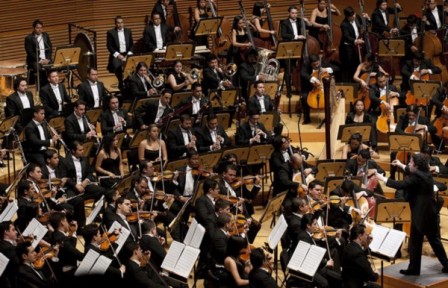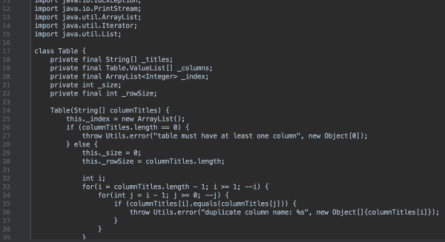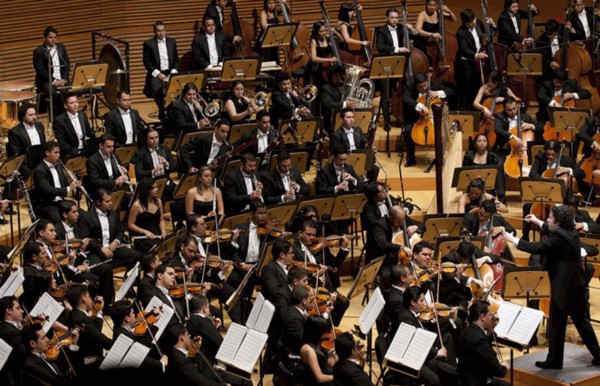As a music double-major at UC Berkeley, I have the privilege of attending UCB Symphony Orchestra concerts for free. Although I often attend performances and regularly study the music and history relevant to orchestral performances, I never cease to be amazed by the sheer complexity and beauty of the orchestra. All the instruments not only play in perfect harmony, but also synchronize tempo and dynamic changes to create a stunning performance.

Listening to these amazing musicians, it’s nearly impossible to believe that such a performance came together “by chance” or “by accident.” The composer and musicians didn’t toss a handful of random notes in the air, letting them scatter randomly onto music staves. Rather, every instrument is precisely tuned to 440Hz, and every musician follows a specific set of notes and instructions on a specific score. These notes were written with much deliberation and planning by a composer who likely labored over the masterpiece for months, if not years. Every musician carefully listens to other musicians and follows the motions of the conductor, who breathes magic into the musical storyline from start to finish. Every step, from composing the first measure to performing the final note, requires intentionality, ultimately converging to unveil a breathtaking masterpiece.
As a computer science minor at UC Berkeley, I have the privilege of coding a variety of fascinating projects — online games, relational database management systems, programming language interpreters, and more. Although these projects can get tedious, challenging, and even frustrating at times, I never cease to be amazed by the design and creativity behind computer science projects. By coding specific instructions in specific environments, I can create usable programs that execute flawlessly (after much debugging, of course).

Coding these projects, it’s nearly impossible to believe that these projects (and even more complex feats of engineering) came together “by chance” or “by accident.” The programmer didn’t toss a handful of random letters and characters in the air, letting them scatter randomly onto a computer file. Rather, every line of code is written to serve a specific purpose, and every function executes according to built-in instructions and rules. These lines of code were programmed with much deliberation and planning by an engineer who likely labored over the project for days, if not weeks or months or years. Every portion of code interacts seamlessly with all the other lines of code, only implementing what they were designed to implement, staying within designated bounds. Every step, from coding the first line to running the completed program, requires intentionality, ultimately converging to unveil a perfect project.
As a human living on planet Earth, I have the privilege of observing marvelous wonders around me — daffodils springing up from the earth, humans speaking and understanding each other, blood clotting to cover a wound, the planets revolving around the sun. Although I am tempted to take life for granted, I never cease to be amazed by the intricacies and beauty of life around me. Even the simple “building blocks” of life are unfathomably intricate; scientists say that we have barely scratched the surface of what can be known.

Living on earth, it’s nearly impossible to believe that what I see came together “by chance” or “by accident.” God didn’t toss a handful of random atoms and molecules into a black void, letting them scatter randomly over empty space. Rather, every atom and molecule was fashioned like a unique designed for a perfect puzzle called life. These building blocks of matter were created with much deliberation and planning by a good and loving God for His glory and our enjoyment. Yes, the mark of sin has marred and scarred creation, but life still bears witness to a glamorous coordination beyond our comprehension. We don’t wake up suddenly worrying that the sun will cease to shine, or that the earth will run out of oxygen, or our eyes will cease to differentiate between light and dark. Every facet of life demonstrates intentionality, ultimately converging to unveil a beautiful creation.
“In the beginning, God created the heavens and the earth…And God saw everything that he had made, and behold, it was very good.” ~Genesis 1:1, 31
* Virtually all scientists agree that microevolution (e.g. evolution within a species, as Darwin observed with finches) is a proven occurrence in nature. However, whether or not the Lord utilized macroevolution (e.g. evolution between species and the big bang theory) is a larger debate among proponents of intelligent design/creationism.
*Written by Isabella Chow, a contributing author

